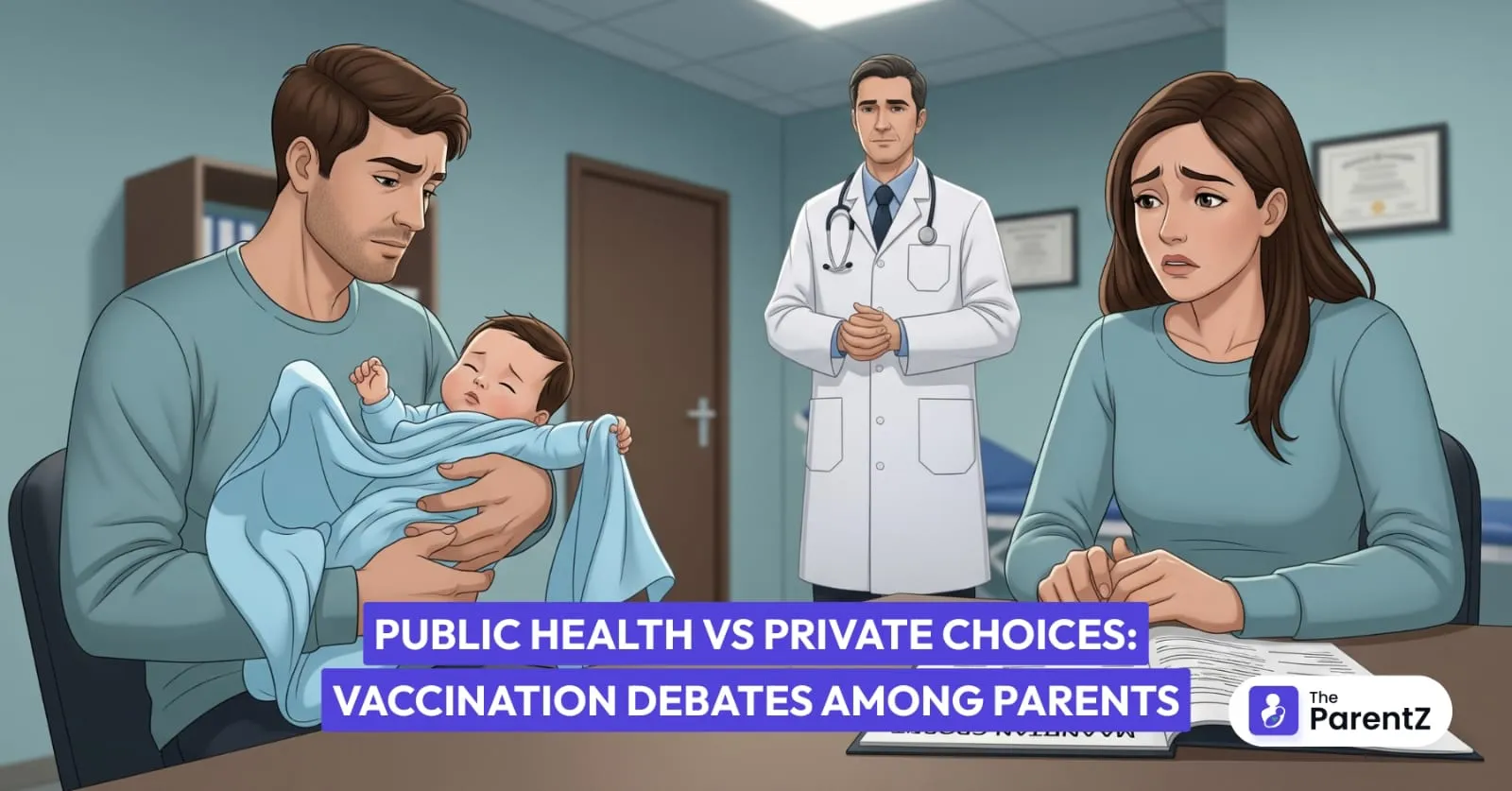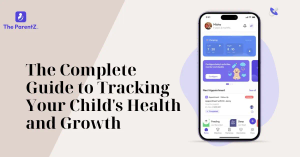Picture this: Two moms sit across from each other at a playground. Their kids are laughing on the swings. One mentions an upcoming doctor's appointment for shots. The other goes quiet. The air shifts. What was a casual chat suddenly feels loaded with judgment, fear, and unspoken disagreement.
This is where we are right now with vaccines. And it's complicated.
Why This Matters So Much
When it comes to our kids, every parent wants the same thing—to protect them. To keep them safe. To make the right choice. But here's the thing: what feels like the "right choice" looks different depending on who you ask.
Some parents see vaccines as essential protection, like car seats or baby gates. Others see them as an unnecessary risk, something their child might not need. And many parents sit somewhere in the middle, asking questions, feeling uncertain, trying to figure it out.
None of these parents are bad parents. They're all trying to do their best with the information they have and the fears they carry.
What Parents Who Vaccinate Are Thinking
For many parents, the decision to vaccinate feels clear. They look at history—diseases like polio that used to paralyze children, measles that caused brain damage, and bacterial infections that led to deafness. These weren't rare. They happened to regular families.
Vaccines changed that. Kids stopped dying from these diseases. Parents stopped living in fear of summer polio outbreaks.
These parents trust that vaccines have been tested, that serious side effects are incredibly rare, and that the protection they offer is real. When their pediatrician says it's time for shots, they schedule the appointment. It feels like basic healthcare, like getting a checkup or treating an ear infection.
They also think about other kids, babies too young for vaccines, children with cancer who can't be vaccinated, and elderly grandparents. When their child is vaccinated, it creates a protective bubble around vulnerable people in their community.
For them, it's not just a personal choice. It's about being part of a community that looks out for each other.
What Parents Who Don't Vaccinate Are Thinking
But walk into the shoes of a parent who decides against vaccines, and you'll find equally strong reasons.
Many of these parents have done hours of research. They've read studies, watched videos, and talked to other parents. They're not ignoring their child's health; they're absolutely consumed by it.
Some worry about what's in vaccines. They read ingredient lists and feel uncomfortable with things they can't pronounce. They wonder: Is this really safe to inject into my baby?
Others have heard stories, sometimes from people they know, about a child who seemed fine until they got vaccinated, then changed. Developed autism. Had seizures. Got sick. Even though large studies show vaccines don't cause autism, when it's your friend's kid or your neighbor's experience, those studies feel far away and impersonal.
Some parents believe in natural immunity. They think, "Humans survived for thousands of years without vaccines. Our immune systems are designed to handle germs naturally." They worry that interfering with that process might cause problems we don't understand yet.
And then there's trust. Over the past few years, trust in institutions has cracked. The pandemic brought rapid vaccine development, changing guidelines, and policies that felt forced. Some parents felt lied to when they were told vaccines would stop COVID spread, but then breakthrough infections happened anyway. That broke something. If they got that wrong, these parents wonder, what else might be wrong?
For these parents, not vaccinating feels like the cautious choice. The protective choice. They're not being careless; they're being careful in a different way.
The Facts We Know
Vaccines don't cause autism. The original study claiming this was fraud and has been completely disproven. Measles and mumps and whooping cough can cause serious harm like brain damage, deafness, and death. Natural immunity sometimes works, but it comes at a cost. Getting the actual disease is riskier than getting the vaccine. Most vaccine side effects are minor: sore arms, low fevers, and fussiness. Serious reactions are extremely rare, far less common than serious disease complications.
But facts alone don't change minds when emotions and experiences are involved.
What's Making This Harder
Social media has changed everything. A parent can spend five minutes online and find hundreds of stories about vaccine injuries. These stories are emotional, detailed, and feel real. Scientific papers with thousands of participants feel cold by comparison.
Misinformation spreads fast. A post from one corner of the internet reaches millions in seconds. Parents trying to make good decisions are swimming in conflicting information, and it's genuinely hard to know what's true.
The pandemic made it worse. Some felt forced into getting vaccinated to keep their jobs or travel. That built resentment. The "I'm done being told what to do" feeling is real.
And vaccine confidence has dropped. Even among people who vaccinate, trust has fallen.
Where Do We Go From Here?
Both sides love their kids fiercely. Both sides are scared. Both sides feel judged.
Parents who vaccinate are scared of preventable diseases coming back, of their babies catching measles from an unvaccinated classmate. Parents who don't vaccinate are scared of side effects, of injecting something they don't fully trust into their healthy child.
The answer isn't about winning an argument. It's about understanding that these fears are real, even when we don't share them.
Conclusion
If you're a parent still figuring this out, talk to your child's doctor. Ask your questions. The hard ones. The ones you're afraid might sound stupid. A good pediatrician won't judge you; they'll help you understand your specific child's risks and needs.
If you've made your choice and feel solid about it, try to offer grace to parents who chose differently. They're doing their best too.
And if you're somewhere in the middle, feeling overwhelmed by all the voices shouting from different corners? That's normal. You're not alone. Take your time. Do your research. Trust yourself.
Because at the end of the day, this isn't about public health versus personal choice. It's about parents trying to go through an impossible world where they're responsible for tiny humans they'd die to protect, but the path forward isn't always clear.





Be the first one to comment on this story.